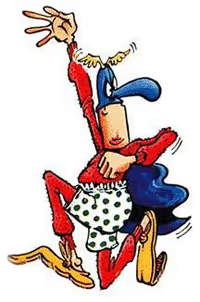Are jukebox musicals like ‘The Cher Show’ dumbing down Broadway...
#25
Posted: 2/24/19 at 11:08am
GavestonPS said: "On the other hand, something like MAMMA MIA defies the idea of music evoking character because, at best, the songs are tangentially related to plot points alone. [...] I was bored senseless by the MAMMA MIA score (at least until the curtain call); I realize millions of people enjoyed the show and I can only assume they appreciated the "Golden Oldies" fest and didn't care there were no true characters on stage."
I would Agree that MAMMA MIA could be isolated from other jukebox musicals, but I disagree regarding, "because, at best, the songs are tangentially related to plot points alone."
A lot of pop songs are written from a perspective of the singer singing about something or someone. Almost all ABBA songs are written as monologues, or the audible half of a dialogue to/with an unseen character. In creating MAMMA MIA, a plot was constructed around that vast collection of "speeches" that created a direct relationship - not a tangential one. The ABBA songs in MAMMA MIA directly reveal and move the plot forward, and also reveal character just as if they'd been written from scratch for a new book.
The constructed plot and characters for ABBA's catalog aren't particularly deep, or intriguing, but neither are the book and characters in ME AND MY GIRL or THE BOYFRIEND. IMO, I'd put MAMMA MIA in the same category as those two musicals.
Jarethan
Broadway Legend Joined: 2/10/11
#26
Posted: 2/25/19 at 12:53am
IMO they may / may not be dumbing it down, as I have seen a lot of dumb original musicals in 50+ years. Idothink they are doing a long -term disservice: what incentive are future composers going to have trying for a theatre career, when so many musicals that are actually produced do not include original music. I think that is terrible loss.
#27
Posted: 2/25/19 at 9:12am
The constructed plot and characters for ABBA's catalog aren't particularly deep, or intriguing, but neither are the book and characters in ME AND MY GIRL or THE BOYFRIEND. IMO, I'd put MAMMA MIA in the same category as those two musicals.
Oh, no. Those musicals had original scores to be written, integrated into the plot and arranged.The fact that a jukebox musical has no original music immediately places it as a lower level of art compared to an original musical. A Broadway musical flop can bring forth cherished songs that far outlive any memory of the show. A busted jukebox is just a busted jukebox.
"Not a Day Goes By" Sondheim, from a revival that just missed Jesse Green's top 100 revival list.
"All the Things You Are" Kern, Hammerstein from Very Warm for May
"Begin the Beguine" Cole Porter from Jubilee
And this from Jerry Herman, Mack and Mabel
https://www.youtube.com/watch_popup?v=3MHxPuWld5o
#29
Posted: 2/25/19 at 11:12am
GavestonPS said: "Kad said: "But jukebox musicals AREN’T revues or song cycles. They use music just as musicals with original scores do, to develop character, express emotion, and move the plot along, but the music happens to have been created previously."
Your very definition (though correct) is essentially a paradox. The songs do NOT express character in almost all cases because they were not written for that purpose nor for the characters in the "jukebox" version. JERSEY BOYS succeeds in large part because no attempt is made to pretend the characters are doing anything but singing popular songs for a general audience back in the day.
On the other hand, something like MAMMA MIA defies the idea of music evoking character because, at best, the songs are tangentially related to plot points alone. Even Aristotle decries such a lazy use of music in his POETICS. I was bored senseless by the MAMMA MIA score (at least until the curtain call); I realize millions of people enjoyed the showand I can only assume they appreciated the "Golden Oldies" fest and didn't care there were no true characters on stage.
Your definition makes the modern versions of shows like ANYTHING GOES and BABES IN ARMS "jukebox" musicals because while their books are rewritten,their lesser known songs are mostly removed and replaced with hits from other shows by the same composer. These revivals work because, back in the day, every musical comedy had more or less the same characters; an Ethel Merman song from one Cole Porter show can be replaced with a better known Ethel Merman song from another.
As for this thread, yes, there has always been mediocrity and pandering on Broadway. But any show that simply gives spectators what they already know and think they want diminishesthe Broadway experience;just as any show that challenges audience expectations while also entertaining enhances the Broadway "brand"."
I never said they express character effectively, but in most cases you cannot deny the attempt- no matter how contrived or bending-over-backwards- is made, often to the detriment to the book for being forced to do the nigh-impossible. Although not a stage show, Across the Universe comes to mind- having a character named Prudence who needs to be enticed outside just so we can hear "Dear Prudence."
And yes, I would consider a show such as Anything Goes a case like this- popular songs shoehorned into a book.
And, of course, "jukebox show" seems a pejorative only slapped onto musicals that use popular music. But there are many cases of musicals pillaging the songbooks of Gershwin or Berlin to create a "new" show, or to pad out the thin score of movie musical being brought to the stage. Are these any more artistic than pillaging the hits of Cher?
#30
Posted: 2/25/19 at 4:00pm
I would put in a word here for the 1987 and 2011 productions of Anything Goes. They deserve the title of revivals over jukebox. The book from 1934 was strong enough, barely, to hold up the framework of the last two productions, created over 50 and 70 years after the original. The score was very strong without the addition of other Porter standards; with the two large production numbers, "Anything Goes" and "Blow, Gabriel Blow" maintained at the same spots in the story.
The practice of placing other popular songs from other productions, "Friendship," You're the Top," and "It's DeLovely," as long as the songs are not being pilfered from another revival production from that composer, pleases the audience and preserves the song. In Kiss Me, Kate the song "From This Moment On," although not placed at the optimal spot in the plot, is better to have been saved than lost.
In other cases revival or "offspring of a jukebox" is more difficult. If comparing Nice Work if You Can Get It to The Cher Show, I would probably avoid the comparison, but if pressed would have to acknowledge the superiority of Gershwin, who composed for stage, screen and concert hall, with Sonny Bono, Bob Stone and the other Cher composers who wrote to feed the unflagging appetite of the Top 40 machine.
#31
Posted: 2/25/19 at 9:34pm
Kad said: "...And yes, I would consider a show such as Anything Goes a case like this- popular songs shoehorned into a book.
And, of course, "jukebox show" seems a pejorative only slapped onto musicals that use popular music. But there are many cases of musicals pillaging the songbooks of Gershwin or Berlin to create a "new" show, or to pad out the thin score of movie musical being brought to the stage. Are these any more artistic than pillaging the hits of Cher?"
Just to be clear, Kad, I wasn't disagreeing with your post; I was adding to your remarks.
And as for "shoehorning", it was always the case with ANYTHING GOES, since the entire book was discarded during rehearsals. The plot had dealt with a shipwreck, but a real-life sinking at sea convinced the producers that audiences wouldn't laugh at a fictional shipwreck. So a new book was hastily written about a trans-Atlantic crossing and the songs were "shoehorned" into it.
The one difference I see between ANYTHING GOES and WHITE CHRISTMAS v. THE CHER SHOW is that at least some unity is conferred by the use of one composer's material. Not so in THE CHER SHOW (which I haven't seen and don't mean to knock here, except in theory).
I happen to love the 1960 version of ANYTHING GOES (I prefer the lesser known songs, "Friendship" as a trio, pushing "I Get a Kick Out of You" back to where it has some meaning for Reno, etc. But, no, I don't think it elevated the art form in the way COMPANY or A CHORUS LINE did.
theaterlyfe19
Featured Actor Joined: 11/28/18
#32
Posted: 2/26/19 at 8:24am
Could the same be asked about musicals adapted from movies or books(Mean Girls, To Kill A Mockingbird, Groundhog Day, Matilda, etc.)?
theaterlyfe19
Featured Actor Joined: 11/28/18
#33
Posted: 2/26/19 at 8:25am
Or would you say it's a case by case basis and you also have to consider the creative team and whether or not they do justice to the material?
#34
Posted: 2/26/19 at 10:11am
Idothink they are doing a long -term disservice: what incentive are future composers going to have trying for a theatre career, when so many musicals that are actually produced do not include original music.
Because so few of them succeed, I would think it's irrelevant. The incentive is that more musicals with original scores get produced and are celebrated than those without original scores.
A Broadway musical flop can bring forth cherished songs that far outlive any memory of the show.
Sometimes they do, sometimes they don't. I've never found myself cherishing or humming tunes from The Story of My Life, The People in the Picture or Glory Days.
A busted jukebox is just a busted jukebox.
If a cast recording of a flop jukebox musical pleases fans of the music featured in the show, then they can cherish those arrangements and performances. It's an apples/oranges false comparison, anyway. Of course original scores might possibly yield a new song that people might enjoy. Jukebox musicals won't, but neither will plays, wrestling matches, tractor pulls, slam poetry, pottery throwing, Amy Schumer sketches or anything else that doesn't contain original musical theatre scores. We get new flop scores with potential cult followings every year.
There is a craft at fashioning a book around existing music not written for the stage and as we've seen, it's not particularly easy to pull off successfully. And PLENTY of musicals with original scores have lazy or terrible book writing (I saw the premiere of Gotta Dance in Chicago...oy!).
#35
Posted: 2/27/19 at 10:59am
My biggest hesitance regarding jukebox musicals is that the show itself usually, by necessity, is second to the brand of whoever owns the music. Adapting a musical from a book, play, or movie means starting with that backbone and building from it, and obviously that comes with its own limitations, but jukebox musicals face a double issue with both the songs being pre-written and the artist (or whatever team currently represents their corpse) having their own demands. It's impossible for me to approach The Cher Show or Summer without constantly having the dagger of the brand dangling over me, while when I'm watching Matilda I'm not thinking about the Roald Dahl estate.
#36
Posted: 2/27/19 at 12:03pm
Because so few of them succeed, I would think it's irrelevant. The incentive is that more musicals with original scores get produced and are celebrated than those without original scores.
I disagree. Jukebox musicals have a higher rate of success than other new musicals because they not only appeal to theater regulars, but also to people of a lower brow who do not ordinarily frequent Broadway.
Mama Mia, Jersey Boys, Beautiful - Have gone beyond mere success to become franchises.
Motown, On Your Feet, Million Dollar Quartet, Movin' Out - All comfortably passed the one year mark.
Baby, It's You, Margaritaville - Flops
Summer, Head Over Heels - Borderline flops
Ain't Too Proud - Expected hit. (Temptations)
A Broadway musical flop can bring forth cherished songs that far outlive any memory of the show.
Sometimes they do, sometimes they don't. I've never found myself cherishing or humming tunes from The Story of My Life, The People in the Picture or Glory Days.
Right. That's probably why I wrote Can produce cherished songs, not Will absolutely produce them.
It's an apples/oranges false comparison, anyway. Of course original scores might possibly yield a new song that people might enjoy. Jukebox musicals won't, but neither will plays, wrestling matches, tractor pulls, slam poetry, pottery throwing, Amy Schumer sketches....
You left "Slithy Toves" off your list.
Here is a discussion by the Times critics from last August.
Can Critics Learn to Love the Jukebox Musical?
https://www.nytimes.com/2018/08/29/theater/jukebox-musicals-broadway.html
#37
Posted: 2/27/19 at 12:08pm
The flop shows that produced hit songs and standards were all in an era when musical theatre was not only in step with the popular tastes of the mainstream music scene, but WERE the popular tastes of the music scene, and the industry songwriters were mostly writing musicals and then farming the songs out, hit or flop alike.
To draw an equivalent today, Max Martin, Babyface, Desmond Child and Dr. Luke (to name a handful of studio songwriters with name recognition) are writing singles, not musicals. And when a studio songwriter like Diane Warren DOES write a musical, so far it hasn't produced anything with the quality or longevity of their individual songs for individual artists.
ScottyDoesn'tKnow2
Broadway Legend Joined: 1/22/14
#38
Posted: 2/27/19 at 2:20pm
I'm assuming we're talking about all musicals that use preexisting music from recording artists and not distinguishing a bio-musical like Jersey Boys/Beautiful/Summer/The Cher Show from ones like Mamma Mia where they repurpose the preexisting music to a wholly unrelated and original story. Whatever the answer to the question is, the fact is they are here to stay for a while. Like Hollywood, Broadway has recognize the money making potential in nostalgia. These things are cash grabs and more and more of them are being made with not only the consent but with the promotion of the original artists making them. Look at Bohemian Rhapsody. That film fed the egos of the living members of Queen and is being used to promote them again. That's what these musicals are doing for these artists now. And they can be successful. Jukebox musicals aren't guaranteed successes, of course, BUT they do seem to be "safer" investments so long as you choose your artist right.
On another note, I remember reading someone saying producing a Broadway show has become such a costly and risky venture that we no longer have room for shows that just wanted to tell simple stories and entertain people. They said they're either these theatrical events meant to attract tourists and become a franchise or very intimate productions that try to promote musical theatre at art that may have had humble beginnings Off-Broadway. Basically, he said gone are the days where a show with modest aspirations like 110 in the Shade would get made. Maybe what these jukebox musicals are doing is filling that void.
#39
Posted: 2/27/19 at 3:35pm
It seems like for every 20 jukebox musicals that appear on Broadway, maybe 1 is successful. It doesn't seem to be worth the money, time and huge amount of energy it takes to mount a Broadway show but, as posters have pointed out, people are still going and enjoying them (even briefly), so who knows.
#40
Posted: 2/27/19 at 3:36pm
Mama Mia, Jersey Boys, Beautiful - Have gone beyond mere success to become franchises.
You forgot one of my favorites, Rock of Ages.
Jukebox musicals have a higher rate of success than other new musicals because they not only appeal to theater regulars, but also to people of a lower brow who do not ordinarily frequent Broadway.
No, they don't, but did you just say "people of a lower brow"? Seriously? That's just snobbery, especially when it's not true.
Motown, On Your Feet, Million Dollar Quartet, Movin' Out - All comfortably passed the one year mark.
The one-year mark has nothing to do with being a hit (Xanadu just barely passed it!). Unless you're using some other definition of "success". Regardless, since the advent of Mamma Mia (which appears to be the milestone every critic uses for rehashing the same pointless article), The Producers, Hairspray, Urinetown, Avenue Q, Wicked, Spamalot, Spelling Bee, The Color Purple, Drowsy Chaperone, Spring Awakening, In the Heights, Next to Normal, Billy Elliot, Memphis, Book of Mormon, Kinky Boots, Gentleman's Guide, Fun Home, School of Rock and Hamilton all ran over a year AND recouped. And as we all know, "jukebox musicals" have been around a lot longer than just Mamma Mia.
Right. That's probably why I wrote Can produce cherished songs, not Will absolutely produce them.
Which I also addressed in the same post.
Look at Bohemian Rhapsody. That film fed the egos of the living members of Queen and is being used to promote them again.
With Rocket Man right on its heels. Every art form has its styles and sub-genres that crop up, either temporarily or permanently, as a result of trends in the form. And all artistic trends are the result of either innovation or commerce (or if you want to go really far back you could also add religion, though depending on the era, religion was either a direct influence or indirect via innovation and commerce) which adds to the evolutionary history of the art. Musical theatre is no exception.
#41
Posted: 2/27/19 at 5:05pm
darquegk said: "The flop shows that produced hit songs and standards were all in an era when musical theatre was not only in step with the popular tastes of the mainstream music scene, but WERE the popular tastes of the music scene, and the industry songwriters were mostly writing musicals and then farming the songs out, hit or flop alike.
There is some truth to this, although first you must separate Broadway and Hollywood as the source of many pop songs, with Hollywood having a big edge. But you exaggerate the number of hit songs from the 20s through 40s that came from Broadway and Hollywood. Most popular songs were written for specific pop vocalists of the time and the swing and jazz bands the crossed the country in that era. Duke Ellington, Irving Berlin, Hoagy Carmichael, Harry Warren, Harold Arlen and the ubiquitous Johnny Mercer were among those who wrote only some minority of their songs for stage or screen.
There was a transition period in the 60s and 70s when only top Broadway songs made it to the pop charts. Notably, Louis Armstrong's version of "Hello Dolly" in 1964 reached the number one spot, displacing the Beatles who had occupied it for the 14 preceding weeks. "People" from Funny Girl was a huge hit and a significant number of other Broadway hits scored. "Smoke Gets in Your Eyes," written by Jerome Kern back in 1933 for the stage was one of the biggest hits of the 50s for the Platters in 1959.
Bobby Darin's cover of "Mack the Knife, one of the top recordings of the century, was somehow derived from the Bertolt Brecht and Kurt Weill song from Threepenny Opera. Actually there were more crossovers than I thought. "The Impossible Dream," "Memory," "Blue Moon," "Mrs. Robinson," and almost every song from the musical Hair.
Jukebox musicals have a higher rate of success than other new musicals because they not only appeal to theater regulars, but also to people of a lower brow who do not ordinarily frequent Broadway.
No, they don't, but did you just say "people of a lower brow"? Seriously? That's just snobbery, especially when it's not true.
Oh, you are not only a Prince of P.C. You may be the King. Of course there is no correlation whatsoever between education and Broadway theater attendance. The night I saw The Band's Visit, you can't seriously believe that every level of highest education from elementary school to doctorate was represented proportionately in the audience.
We have abolished class distinctions in the country, and only the snobs do not realize this.
Ciao.
#42
Posted: 2/27/19 at 5:58pm
Oh, you are not only a Prince of P.C. You may be the King. Of course there is no correlation whatsoever between education and Broadway theater attendance. The night I saw The Band's Visit, you can't seriously believe that every level of highest education from elementary school to doctorate was represented proportionately in the audience.
We have abolished class distinctions in the country, and only the snobs do not realize this.
Was that supposed to make sense?
#43
Posted: 2/27/19 at 7:34pm
I’m surprised the Italian-American population hasn’t risen up against the term low-brow yet, given its association with phrenology and eugenics; if sleepy-eyed can become a slur last year, a term that deliberately implies that non-WASP physiology is linked to a simian state is probably next on the chopping block.
Not sure if I’m saying “watch your words” or more “use it while you can, it’s not long for this earth.”
#44
Posted: 2/27/19 at 8:51pm
theaterlyfe19 said: "Could the same be asked about musicals adapted from movies or books(Mean Girls, To Kill A Mockingbird, Groundhog Day, Matilda, etc.)?"
Yes and no. Adapting a film doesn't necessarily mean the resulting musical is inferior or less challenging. A LITTLE NIGHT MUSIC, THE KING AND I (unofficially because of contract limitations, but in fact adapted from the movie, ANNA AND THE KING), SWEET CHARITY and HAIRSPRAY were all successful attempts to create something new and artful, based on an existing film. Even many of the flop adaptations, such as THE KING OF HEARTS, AMELIE and BRIDGES OF MADISON COUNTY, were noble failures, legitimate attempts not to merely duplicate, but to use the inspiration of a model to create a truly new piece.
On the other hand, the current glut of adaptations of films for no apparent reason other than that ticket prices are so high that audiences want to know they will like something before they buy it encourages slavish copies-with-a-score-tacked-on rather than original works of art.
#45
Posted: 2/28/19 at 6:47am
darquegk said: "I’m surprised the Italian-American population hasn’t risen up against the term low-brow yet, given its association with phrenology and eugenics; if sleepy-eyed can become a slur last year, a term that deliberately implies that non-WASP physiology is linked to a simian state is probably next on the chopping block.
Not sure if I’m saying “watch your words” or more “use it while you can, it’s not long for this earth.”"
I, myself am half Sicilian, courtesy of my mother's side of the family. We are the darkest of the Italian immigrants. There is no longer an "Italian-American." community. They worked hard and were assimilated a long time age.
My maternal grandfather left his parents and four brothers in Sicily to emigrate to this country in 1912. He was 16 years old and his profession was cobbler. He served on a destroyer escort in WW1 as the ship's cobbler and got to keep the money he made. But his outgoing personality and work ethic landed him a job as an insurance agent and ultimately as a district manager for Prudential, although he never lost his rather thick Italian accent.
For the most part the Italians were too busy working hard and getting ahead and providing for their families to be concerned with slurs, real and imaginary.
#46
Posted: 2/28/19 at 6:59am
It's not that jukebox musicals are dumbing down Broadway, it's that society has become less intelligent and Broadway is responding to that. I teach. I see how unless an answer is obvious to young people, very few will seek out answers. They don't question things; they don't want to be challenged. It's a societal issue because of technology, video games, and other instantaneous way of getting thrills and answers. Technology is wonderful in some ways, but in the long run, there are lots of negatives. Look at the Drama Book Store or Borders. Yes, rent is high, but if few are buying their products, they don't stand a chance. Ask libraries. It's sad but true.
ScottyDoesn'tKnow2
Broadway Legend Joined: 1/22/14
#47
Posted: 2/28/19 at 9:35am
OlBlueEyes said: "For the most part the Italians were too busy working hard and getting ahead and providing for their families to be concerned with slurs, real and imaginary."
That is not to say, however, that individuals within groups that have mobilized to fight slurs and negative representation and forms of injustice also don't work hard or provide for their families. Also, I do think there has been some sort of revival of Italian-American pride. There's parades and forms of public representation in cities where there exists an Italian-American community AND there are groups that focus on positive representation or at least more nuanced representation of Italian-Americans. I remember they were mobilized when the show The Sopranos was popular. Many of them are really sick of the way Hollywood has historically portrayed Italian-Americans in that light but very little else.
However, I do see where you are coming from regarding assimilation and attitudes about not caring about slurs from some self-identified and publicly proclaimed Italian-Americans regarding the whole assimilation thing. Sometimes when I read discourse (to call it that) of something race related dealing with blacks or Latinos or recent immigrants, I would some times see a post from someone claiming to be Italian-American who complains about the lack of assimilation or the "constant complaining" and as a Vietnamese-American activist, I do wonder if it's due to some people's perception of how different ethnic groups different approaches to dealing with discrimination (although I don't think it's that different if we really look at it as I said about many of the early groups coming together these days and asserting their pride). I know Italians and other Southern Europeans, Eastern Europeans, Irish, etc. dealt with a lot of backlash and discrimination early on before the other wave of immigrants from other continents came along with a wholly different approach of dealing with it (one that we see more of since that wave is more recent).
#48
Posted: 2/28/19 at 9:35am
I see how unless an answer is obvious to young people, very few will seek out answers. They don't question things; they don't want to be challenged.
Well, that has not changed since I was in school in the 80s.
#49
Posted: 2/28/19 at 10:01am
Wait, how has this fallen on blaming young people? Aren't young fans currently pushing shows with original scores like Be More Chill, Mean Girls, Dear Evan Hansen, and Heathers?
(and I definitely listen to a lot more ABBA than any of those cast recordings).
Videos








